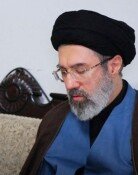Performance of State-run Firms CEOs to Be Evaluated More Thoroughly
Performance of State-run Firms CEOs to Be Evaluated More Thoroughly
Posted May. 14, 2008 08:36,
Salaries for the heads of state-run organizations will be lowered to a level equivalent to that of vice ministers. According to the decision, they cannot receive more than 324 million won of rewards (including basic salary and performance-based payment) this year. Salary packages for heads of state-run financial institutions including the Korea Development Bank will not exceed 480 million won.
Also, heads will be required to submit their management plans every year. If they fail to realize the goals, they will be dismissed immediately.
The finance ministry announced yesterday that it has devised measures that would obligate heads of state-run organizations to sign a contract every year and that it has reported the plan to the cabinet council.
Under the plan the government will set the basic salary for heads of state-run organizations at 108 million won for this year, comparable to that of vice ministers, and lower the basic salary of some state-run corporations whose heads receive a larger salary.
The government will provide performance-based payment depending on the intensity of competition and managerial risk. It will also cap the amount of performance-based payment. Accordingly, performance-based payment for heads of state-run corporations and financial firms including KDB cannot exceed 200 percent of their annual salaries. As well, the heads of quasi-government agencies and other government agencies cannot receive more than 100 percent and 120 percent of their annual salaries as performance-based payment, respectively.
In addition, the total amount of salary and performance-based payment received by heads of state-run companies including Korea Electric Power Corporation cannot surpass 324 million won. Given that the average salary of CEOs of state-run corporations was 218 million won in 2007, they will not face a drastic cut in salary.
However, the government will take salaries received by the CEOs of private-sector financial institutions into consideration and adjust salaries for heads of state-run financial firms via the salary adjustment committee, which will be put under the committee of state-run organizations.
The finance ministry plans to set the salary for heads of state-run financial institutions at around 150 percent of vice ministers. If the plan is implemented, a CEO of a state-run financial institution would receive 162 million won as a salary and the total amount of his reward would reach 486 million won if he successfully gets 200 percent of performance-based payment. That means a drastic cut in the total amount of annual compensation packages for heads of state-run financial firms. In comparison, the KDB governor received 612 million won, the head of the Export-Import Bank of Korea 568 million won, and the Industrial Bank of Korea governor 558 million won in 2007.
With the new measure, the heads of 305 state-run organizations should submit their management plans to related ministries every year. Ministers will evaluate each heads performance and grade it outstanding, good, average, and poor. Those whose performance is considered poor will be dismissed immediately and others will receive performance-based payment depending on the results of the evaluation.
Bae Guk-hwan, vice minister of the finance ministry, commented, Heads of state-run organizations will be evaluated on an absolute scale. If an organization shows poor performance, not only the head but also related ministers and vice ministers will be at a disadvantage when their own performance is evaluated.
In addition, the government selected and forced 90 state-run organizations to choose their heads via an open recruitment process.
They include 11 large-scale state-run corporations including KEPCO and the Korea National Housing Corporation, five agencies related with pension funds or insurance such as the National Pension Service, five state-run agencies such as Woori Financial Group and the Industrial Bank of Korea which compete in the private sector, and another 69 agencies including state-run research centers, the Korea Trade-Investment Promotion Agency, the Korea Investment Corporation, and the Export-Import Bank of Korea.
higgledy@donga.com







